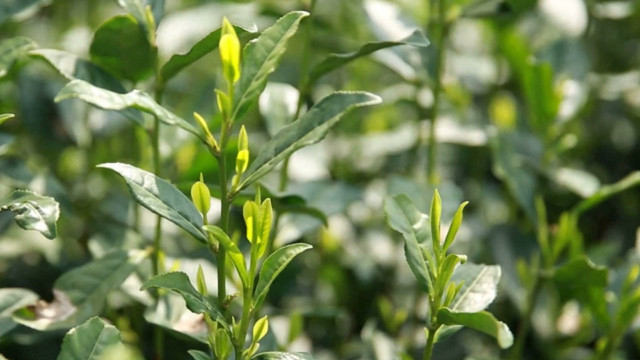It’s one of the staples of China’s rich culture: tea.
China is the largest tea producer in the world.
These highlighted provinces represent China’s main tea-producing regions – each specializing in its own variety.
The Chinese and the rest of the world are drinking it up.
CGTN’s Frances Kuo reports.
Spring has officially arrived and that means thousands of tea farmers across China are hard at work.
“We can produce 2500 to 3000 kilograms of fresh tea leaves and about one ton of dried leaves a day,” Wang Zhongbang, Director of the Tea Developing Center of Pu’an Country said.
While tea pickers are busy in the field, more than 6,000 machines run day and night at Liping County in southern Guizhou Province.
The tea industry is a mainstay of the economy here. More than half of the residents work in tea production or related industries.
“In the spring tea picking season, 23,000 jobs have been created for the impoverished people and low-income families,” said Gan Shijie, Director of the Tea Bureau of Liping County. “Wage payment for the tea picking farmers is expected to reach 240 million yuan, the equivalent of nearly $38 million dollars.”
At last year’s Guizhou Tea Expo, the tea industry experienced a 20 percent jump in production.
As the industry continues to grow, Chinese tea is attracting more of the world’s attention.
Some tea plantations have doubled up as tourist spots, attracting millions of visitors a year. According to research website World’s Top Exports, China accounts for a fifth of global tea exports.
Even not so well-known teas are gaining popularity, like Wuyi Rock Tea — named after a mountain in eastern China which is a World Cultural and Natural Heritage Site.
Making tea accessible isn’t just confined to brick-and-mortars. Many are sold online, making it more available to the overseas market.
“We’ve connected up with 160 sales agents overseas and that has given us knowledge about the tea drinking habits of various countries,” said Lin Zhiwei, director of a tea company. “By opening the market overseas, we have gotten to know that even our bits and pieces, such as tea stalks that we used to reject, are in great demand overseas. A Russian businessman says they need 13 tons of tea stalks a month. So, in this sense, everything associated with tea can be utilized.”
President Xi Jinping has said he hopes the Chinese tea culture will grow into an important platform for cooperation between China and the rest of the world.
That mission could get a boost with the Belt and Road Initiative, providing more potential markets for China’s traditional drink.
Tony Gebely discusses China’s tea industry
CGTN’s Susan Roberts spoke with Tony Gebely, executive director of the American Specialty Tea Alliance, about China’s tea industry
 CGTN America
CGTN America

